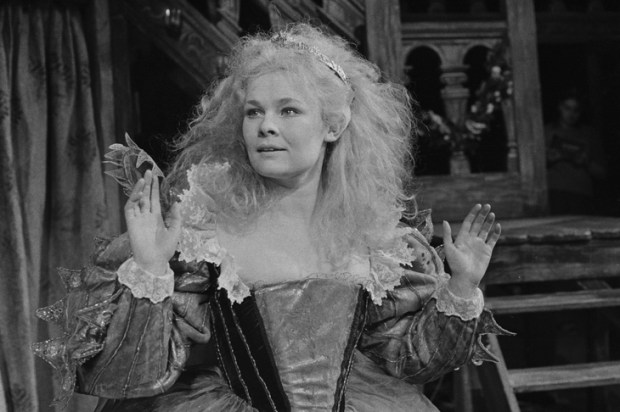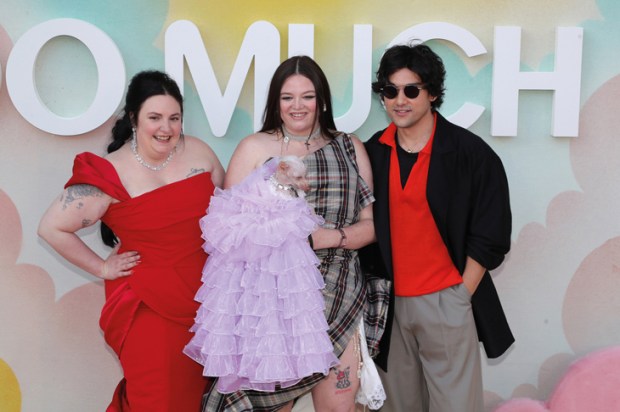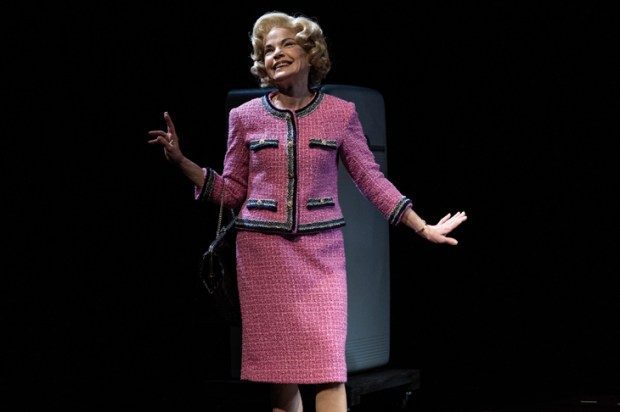There’s something inspiring about getting an example of the national talent locking horns with the glory of traditional high culture, and it’s great to have an example of this in the new recording of Jaime Martín, the head of the Melbourne Symphony Orchestra, doing Debussy and Richard Strauss. The Debussy is Arriettes oubliées and the Strauss is Four Last Songs in the interpretation of soprano Siobhan Stagg. And no, it doesn’t matter if you know every interpretative swerve of Elisabeth Schwarzkopf doing the songs with George Szell: this is the performance style Melburnians have learned to love in Martín, a disciplined but never less than exuberant extroversion, an almost swashbuckling level of engagement that this conductor brings to the making of music.
And although it’s not necessary it’s great when this fuses with a sense of local identification. You feel it when you listen to the famous spoken word recording of A Midsummer Night’s Dream and there is the discernibly Australian voice of Robert Helpmann saying to his dancing and acting partner Moira Shearer, ‘I’ll met by moonlight, proud Titania.’
Even the older babyboomers may be too young to have seen the Shakespeare tour Helpmann did in Australia with Katharine Hepburn – they did not only The Merchant of Venice and The Taming of the Shrew but that extraordinary deeper than dark black comedy Measure for Measure – though it’s a privilege to have witnessed the stupefied wonderment of his Don Quixote in the presence of that god of a dancer Rudolf Nureyev in what was essentially a character role. And then there was that strange play The Cobra in which he played Bosie, Lord Alfred Douglas, over whom Oscar Wilde broke his heart and to whom he would write De Profundis the story of how he ruined his life. Mark Lee (the blonde runner boy in Gallipoli) played the young Bosie.
The cultural nationalism doesn’t come into it with Tommy Lee Jones unless you’re a Texan or some variety of American Southern. It’s a while since we watched Bertrand Tavernier’s film of In The Electric Mist in which Tommy Lee Jones played a part he was born to essay, James Lee Burke’s Dave Robicheaux, that haunted complex sleuth from the bayous of Louisiana with more than a touch of Graham Greene to his characterisation. Well, it was a week when only the dark side of this great actor did the trick. He was the roommate of Al Gore when he studied at Harvard. He wrote a thesis on Flannery O’Connor and played Thomas More in A Man for All Seasons. He then went on to create the role of Sam Shepherd’s Austin in True West.
In any case, we found ourselves watching Tommy Lee Jones act in and direct one of those shaggy-dog stories of a deep and dazzling darkness, The Three Burials of Melquiades Estrada.
The Three Burials of Melquiades Estrada is in several parts. Tommy Lee Jones’ great Mexican amigo has been murdered and much of the action is told in flashback as he seeks to enact vengeance in a sweepingly grotesque parody of justice. The film involves a corpse dragged round the Mexican countryside as well as the horrors Tommy Lee Jones visits on the killer, though the tone of this shimmering desert haze of a film confounds the mind. It is full at every point of the timbre of a seriousness in quest of its object and the effect is ultimately one of pity and terror in the midst of bewilderment.
But Tommy Lee Jones is unlike any other actor or auteur in the cinema. He talks a justifiable pride in the fact that he can make the most ordinary dialogue sound like Flaubert or Shakespeare in the case of Hollywood hack work but he also leans towards the kind of script that has – Flaubert’s phrase – the kind of music that will move the stars.
Something like that must be behind his decision to film Sunset Limited, the weird two-hander by Cormac McCarthy – the man who wrote everything from All the Pretty Horses to No Country for Old Men. Tommy Lee Jones directed it for HBO and in it he plays an exhausted academic who has tried to throw himself under a New York subway train but has been rescued by the irrepressible Samuel L. Jackson. He is forced to listen to his rescuer’s impassioned and in various ways maddening – as they fall from his ever glib lips – assertions of the absolute providential glory of the love of Jesus; and things get both dark and tricky as you learn the sorts of atrocities Jackson had a hand in when he was in prison.
Sunset Limited is a nearly hysterical play beautifully captured by its direction and by the counterpoint between the bleak nihilism the Tommy Lee Jones character exhibits and the hyped-up buoyancy (which is animate with its own faith and its own doubt) of the man who wants to bathe him in the great reassurance of glory but at the same time has his own hectic agenda. It does not have the ultimate end-of-all-things aspect of The Road which John Hillcoat filmed with Viggo Mortensen and (as the boy) Australia’s Kodi Smit-McPhee, but it has some of the disconcerting suave evocation of the heart of darkness you get in Cormac McCarthy’s last book The Passenger/Stella Maris.
In any case Tommy Lee Jones superbly presents the starkness of Cormac McCarthy’s vision in a way that is at once infinitely weary and full of passion.
It is an astonishing performance and Jackson rises to meet him at every point. We feel we’re locked in a deadly arm wrestle with two intense figures fighting for contrasted santities and the upshot is too close for comfort but take a step back and you get the richest possible sense of the histrionic glitter that’s on display and how far it is from so much of what we idle away the time with.
And Tommy Lee Jones is the exception that proves the rule with any apprehension of the froth and bubble of American drama whether it’s popular or highbrow or both. He is a great actor and an uncompromising director and everything he’s done is worth a look.
Got something to add? Join the discussion and comment below.
You might disagree with half of it, but you’ll enjoy reading all of it. Try your first month for free, then just $2 a week for the remainder of your first year.













